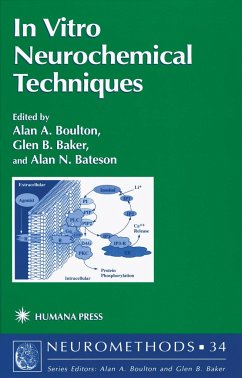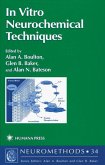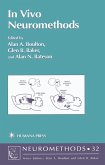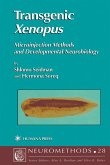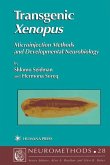In Vitro Neurochemical Techniques is the third work updating and expanding the best-selling inaugural volume of Humana Press's warmly received Neuromethods series, General Neurochemical Techniques (vol. 1). The key techniques detailed in this new edition encompass the breadth of neurochemical and molecular neurobiology research, ranging from the isolation of neuronal genes and the study of their expression to the analysis of receptor-ligand interactions, to the characterization of the consequences of receptor activation. The methods include electrophysiological techniques to explore the functional properties of receptors present in the membranes of excitable cells, methods to isolate novel genes central to neurobiological processes, and protocols to perform in situ hybridization histochemistry. Other methods cover the measurement of changes in gene expression, the rapid identification of gene polymorphisms, and the identification and characterization of second messenger pathways.
The companion volumes, In Vivo Neuromethods and Cell Neurobiology Techniques, cover both in vivo methods and in vitro cell neurobiology approaches. Like the original, all three cutting-edge works will prove exceptionally useful to those basic and clinical neuroscientists who want to expand the range of their current research or develop competence in complementary methods.
The companion volumes, In Vivo Neuromethods and Cell Neurobiology Techniques, cover both in vivo methods and in vitro cell neurobiology approaches. Like the original, all three cutting-edge works will prove exceptionally useful to those basic and clinical neuroscientists who want to expand the range of their current research or develop competence in complementary methods.

